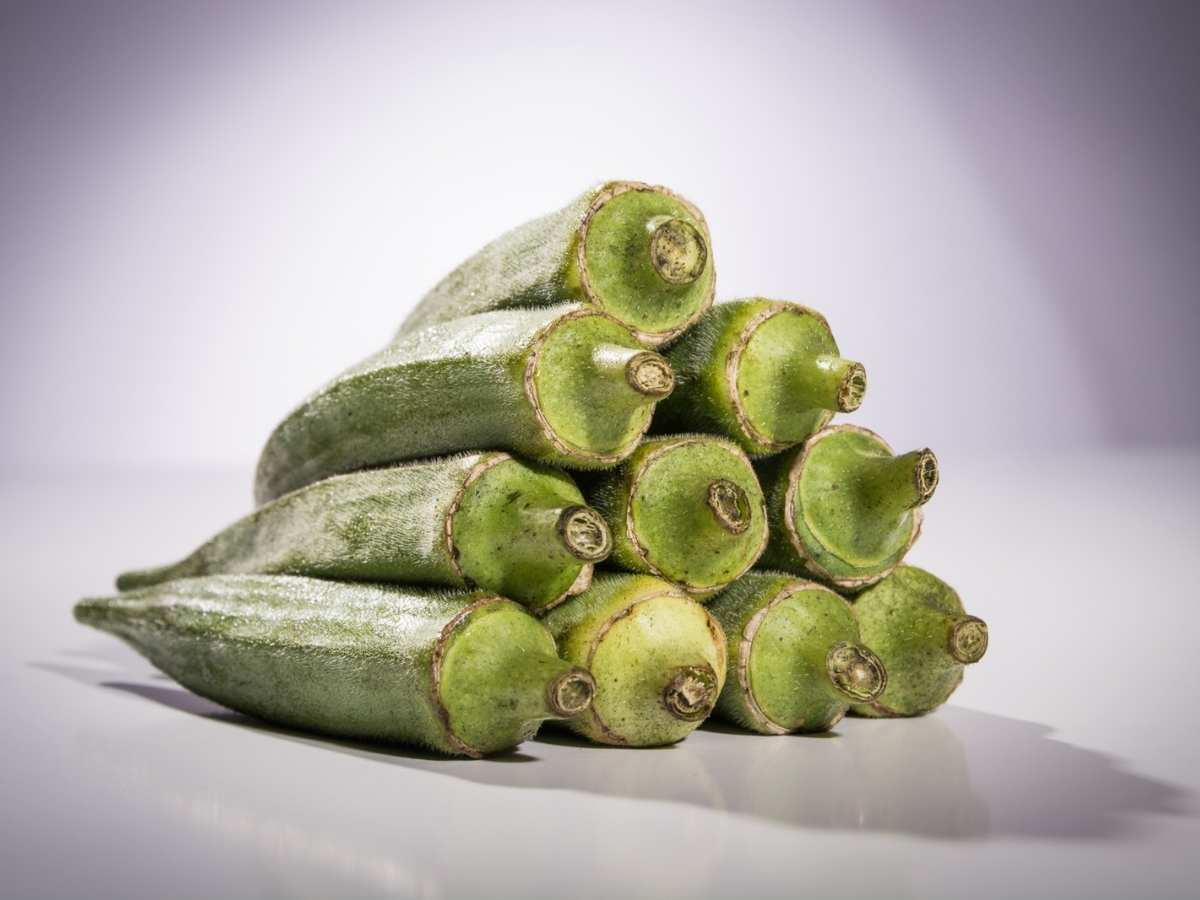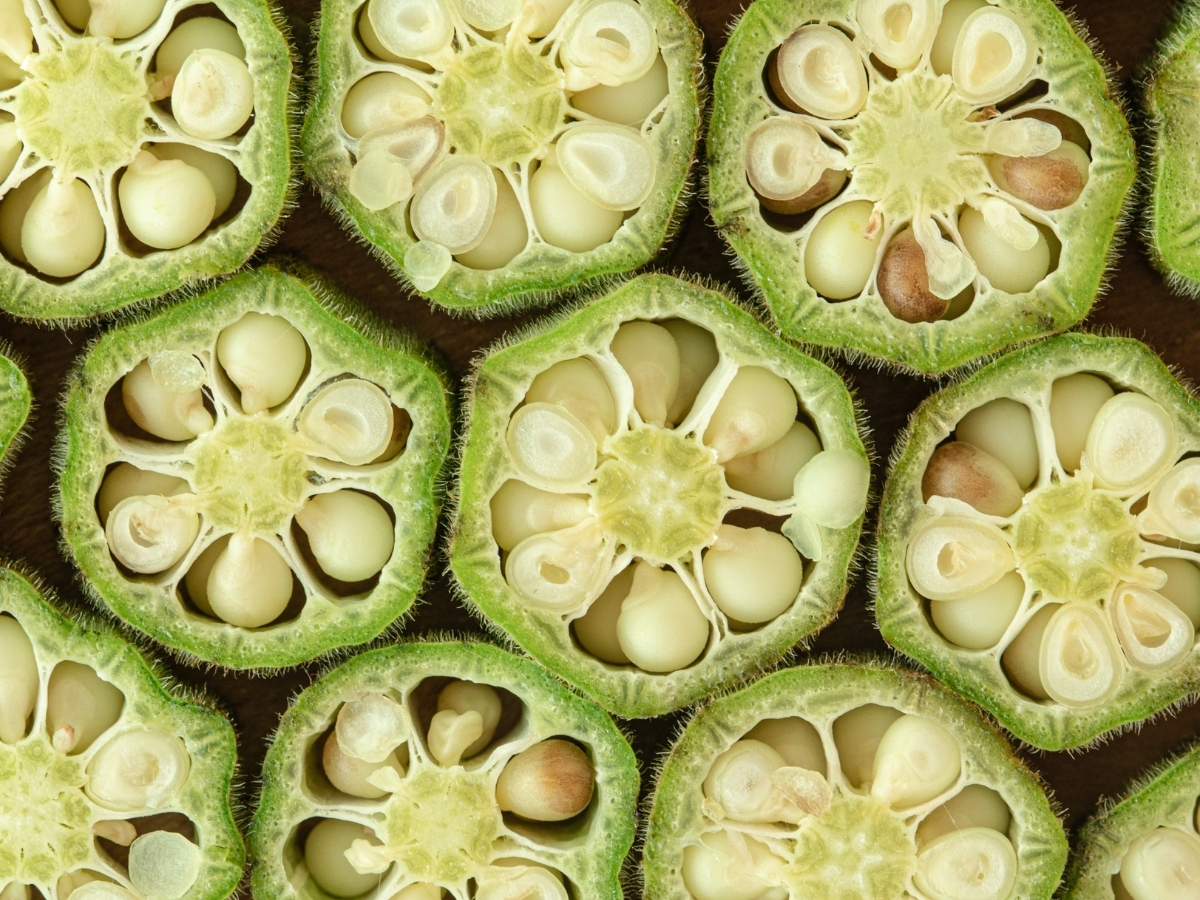Is okra good for diabetes? The answer is yes. Okra (lady’s finger) is low in calories and carbohydrates, yet packed with fiber, antioxidants, and key nutrients slow the absorption of sugar into the bloodstream, and improve insulin sensitivity. In this guide, Natural Health highlights five important ways okra benefits those managing diabetes.
Is okra good for diabetes? 5+ benefits of okra for people with diabetes
Okra often known as “lady’s finger”, okra is a flowering plant that produces edible green pods. It’s a common ingredient in many dishes and offers plenty of nutritional benefits.
And of course, okra is good for diabetes. It’s low in calories and carbs but rich in fiber and antioxidants, which help regulate blood sugar. Some studies also suggest that compounds in okra may improve insulin sensitivity.[1] However, it should be part of a balanced diet and not used as a sole treatment.

Here’s a look at 5+ science-backed benefits of okra that make it a smart addition to a diabetes-friendly diet.
Low Glycemic Index
Okra has a low glycemic index (GI), typically around 20, which means it causes a slow, steady rise in blood sugar.[2] This makes it a suitable vegetable for people with diabetes looking to maintain stable glucose levels.[3]
High amount of fiber
Okra is high in fiber, with about 3.2 grams per 100 grams.[4] This fiber helps slow down the absorption of sugar in the bloodstream, supports better blood sugar control, making it beneficial for people with diabetes.
Read more: Are peanuts good for diabetes? Nutrition expert answers A-Z
Potential to Improve Glucose Metabolism
Some studies show that okra might help the body process sugar more efficiently, which is important for keeping blood sugar levels stable, especially for people with type 2 diabetes:
- Okra is rich in natural antioxidants and plant compounds such as polyphenols and flavonoids.[5] These nutrients help reduce oxidative stress in the body, a factor linked to insulin resistance and difficulties in regulating blood sugar levels effectively.
- The thick, sticky fiber (called mucilage) found in okra can slow down how quickly sugar is absorbed in the digestive system.[6] This helps prevent sharp increases in blood sugar after eating.
- Okra might also make the body more sensitive to insulin, helping cells take in and use sugar better.[7] This can lead to better overall blood sugar control.
May Reduce Fasting Blood Sugar and HbA1c
Okra is good for diabetes because it may help lower fasting blood sugar levels and improve long-term blood sugar control, as shown by HbA1c, a key indicator used to manage diabetes.
- Fasting blood sugar refers to how much sugar (glucose) is in your blood after not eating for about 8 hours. Some research suggests that using okra in forms like extract or powder might help lower this level by slowing how the body absorbs carbohydrates and by helping insulin work better. [8]
- HbA1c is a test that shows your average blood sugar over the last 2 to 3 months. Keeping this number within a healthy range is important to avoid serious health problems related to diabetes. [9]
- In a small study from 2023 published in the Journal of Food Biochemistry, people with type 2 diabetes who took okra powder every day for 8 weeks had noticeable drops in both fasting blood sugar and HbA1c compared to those who didn’t take it. [10]
May Help with Weight Management
Okra has few calories but contains a lot of fiber, which helps you feel full longer and may help you eat less overall.[4] The fiber also slows down digestion and keeps your blood sugar steady, which can reduce hunger and cravings. Because of this, and its low glycemic index, okra can be a healthy food choice for people trying to manage their weight.
Rich vitamins and minerals
Okra is packed with important vitamins and minerals that support overall health:
- Okra contains high amounts of vitamins C and K1. Vitamin C, which dissolves in water, helps support a healthy immune system.[11] Meanwhile, vitamin K1, a fat-soluble vitamin, is important for helping your blood clot properly when needed.[12]
- In terms of minerals, okra contains magnesium, calcium, potassium, and iron, nutrients that support heart health, muscle function, bone strength, and oxygen transport in the body.[13]
The side effects of eating okra
Okra is usually considered a healthy food choice, but consuming it in large amounts may lead to a few unwanted effects for some individuals:
- Digestive discomfort: Because okra is rich in fiber, eating too much may cause bloating, gas, or stomach discomfort, especially for those who aren’t used to high-fiber foods.[14]
- Kidney stone concerns: Okra contains natural substances called oxalates. In people who are prone to kidney stones, high oxalate intake may increase the risk of stone formation.[15]
- Possible allergic response: Although uncommon, some individuals might have an allergy to okra. Reactions can include skin irritation, swelling, or breathing difficulties.[16]
“Okra good for diabetes and is generally safe for most people when eaten in moderate amounts as part of a balanced diet. However, if you have existing health conditions or are taking medication, it’s wise to talk to your healthcare provider before making major dietary changes.”
Incorporating okra into a diabetes-friendly diet

Okra good for diabetes because it’s high in fiber, has a low glycemic index, and may help manage blood sugar levels. You can easily add it to your meals in the following ways:[17]
- Lightly steam or stir-fry with a small amount of oil.
- Mix into soups or stews to boost texture and nutrition.
- Roast or grill it as a wholesome side or snack.
- Soak sliced okra in water overnight and drink the okra water the next morning
So, is okra good for diabetes? While it’s no miracle cure, its fiber, antioxidants, and low glycemic impact make it a smart, natural choice for blood sugar support. At Natural Health, we encourage balanced choices backed by science, because even small things like this can make a meaningful difference in your long-term health.


Last medically reviewed on
How we reviewed this article:
Share this article
Read this next
Is water lemon good for diabetes? What should you know
Lemon water is good for diabetes, not just because it’s refreshing, but because it offers real support for blood sugar control. With zero added sugar, rich in vitamin C and antioxidants, it may help improve hydration, aid digestion, and reduce post-meal blood sugar spikes. At Natural Health, we break down how to make lemon water…
Apple cider vinegar for diabetes: The research says and tips to use
At Natural Health, we explore the growing interest in apple cider vinegar for diabetes. Studies suggest it may help improve insulin sensitivity and lower blood sugar levels after meals. This article explains how apple cider vinegar works, how to use it safely, and what people with diabetes need to know before adding it to their…
Is sweet corn good for diabetes? Dietitians explain
At Natural Health, we know many people managing blood sugar often ask, is sweet corn good for diabetes? The short answer: YES, with the right portion. Corn contains fiber, vitamins, and antioxidants that support overall health. In this guide, we break down how corn fits into a diabetes-friendly diet and how to enjoy it without…